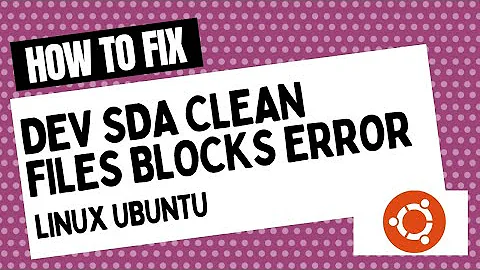How to rename /dev/sdax(partitions) in Linux
-
Unmount the partition:
# umount /part -
Rename the directory after making sure it's not mounted:
# mountpoint /part &>/dev/null || mv /part /best_name_ever Edit
/etc/fstabto replace/partwith/best_name_ever-
Remount the partition:
mount /best_name_ever
The # is of course meant to represent your root prompt, not actual input to be typed in.
To test the safety of this solution or any other one on dummy data
The following instructions are (in part) stolen from Virtual Filesystem: Building A Linux Filesystem From An Ordinary File.
-
Create an ordinary file with a size of 20 MB (for example):
$ dd if=/dev/zero of=dummy_fs bs=1k count=20480 # 20480 = 20 * 1024 -
Create an
ext4filesystem on your file:$ /sbin/mkfs -t ext4 dummy_fs mke2fs 1.42.5 (29-Jul-2012) dummy_fs is not a block special device. Proceed anyway? (y,n) y ... # Output of mkfs -
Mount the filesystem image, create some dummy data on it and test the solution:
# mkdir /tmp/testmount # mount -o loop dummy_fs /tmp/testmount # touch /tmp/testmount/{blah,bleh} # Create dummy data # ls /tmp/testmount blah bleh lost+found # umount /tmp/testmount # mountpoint /tmp/testmount &>/dev/null || mv /tmp/testmount /tmp/sexy_name # mount -o loop dummy_fs /tmp/sexy_name # ls /tmp/sexy_name # to ensure your data is intact: blah bleh lost+found
Related videos on Youtube
MLSC
Updated on September 18, 2022Comments
-
 MLSC over 1 year
MLSC over 1 yearI made a partition like
/parton my machine with some important data...But I can't stand the name of it...
I want a clear solution to resolve it and change the name of it to for example
/test...As you see this is my
/etc/fstabinformation:# /etc/fstab: static file system information. # # Use 'blkid' to print the universally unique identifier for a # device; this may be used with UUID= as a more robust way to name devices # that works even if disks are added and removed. See fstab(5). # # <file system> <mount point> <type> <options> <dump> <pass> proc /proc proc nodev,noexec,nosuid 0 0 # / was on /dev/sda5 during installation UUID=a21a99c4-e5b4-4197-ac5e-80d0fab1f30c / ext4 errors=remount-ro 0 1 # /home was on /dev/sda6 during installation UUID=2e37d833-ca34-4fa7-a5d8-a4423a5af9bc /home ext4 defaults 0 2 # /part was on /dev/sda7 during installation UUID=47e6e0b1-0e57-4184-a378-375b9ce315c5 /part ext4 defaults 0 2 # swap was on /dev/sda1 during installation UUID=485e9f78-4dce-4404-af4e-f43985525264 none swap sw 0 0The point is: My information are important and I scare to manipulate it without being sure... I want a safe solution...
How is it possible?
-
 PersianGulf about 10 yearsto watching which dev is used, apply:
PersianGulf about 10 yearsto watching which dev is used, apply:ls /dev/disk/by-uuid/[the-given-uuid] -l -
 MLSC about 10 years@Mohsen Pahlevanzadeh thank you but I didn't understand the strange
MLSC about 10 years@Mohsen Pahlevanzadeh thank you but I didn't understand the strangethe-given-uuidpart -
 PersianGulf about 10 yearsfor example for /part , your should use :
PersianGulf about 10 yearsfor example for /part , your should use :ls -l /dev/disk/by-uuid/47e6e0b1-0e57-4184-a378-375b9ce315c5 -
 PersianGulf about 10 yearsYou wrote scare, i introduce it because i think you have problem with uuid.
PersianGulf about 10 yearsYou wrote scare, i introduce it because i think you have problem with uuid.
-
-
Jeff Hewitt about 10 years@MortezaLSC I will write a more detailed explanation in a bit.
-
Jeff Hewitt about 10 years@MortezaLSC Please see if this explanation helps.
-
Jeff Hewitt about 10 years@MortezaLSC You're very welcome. I'm glad I could help :)




